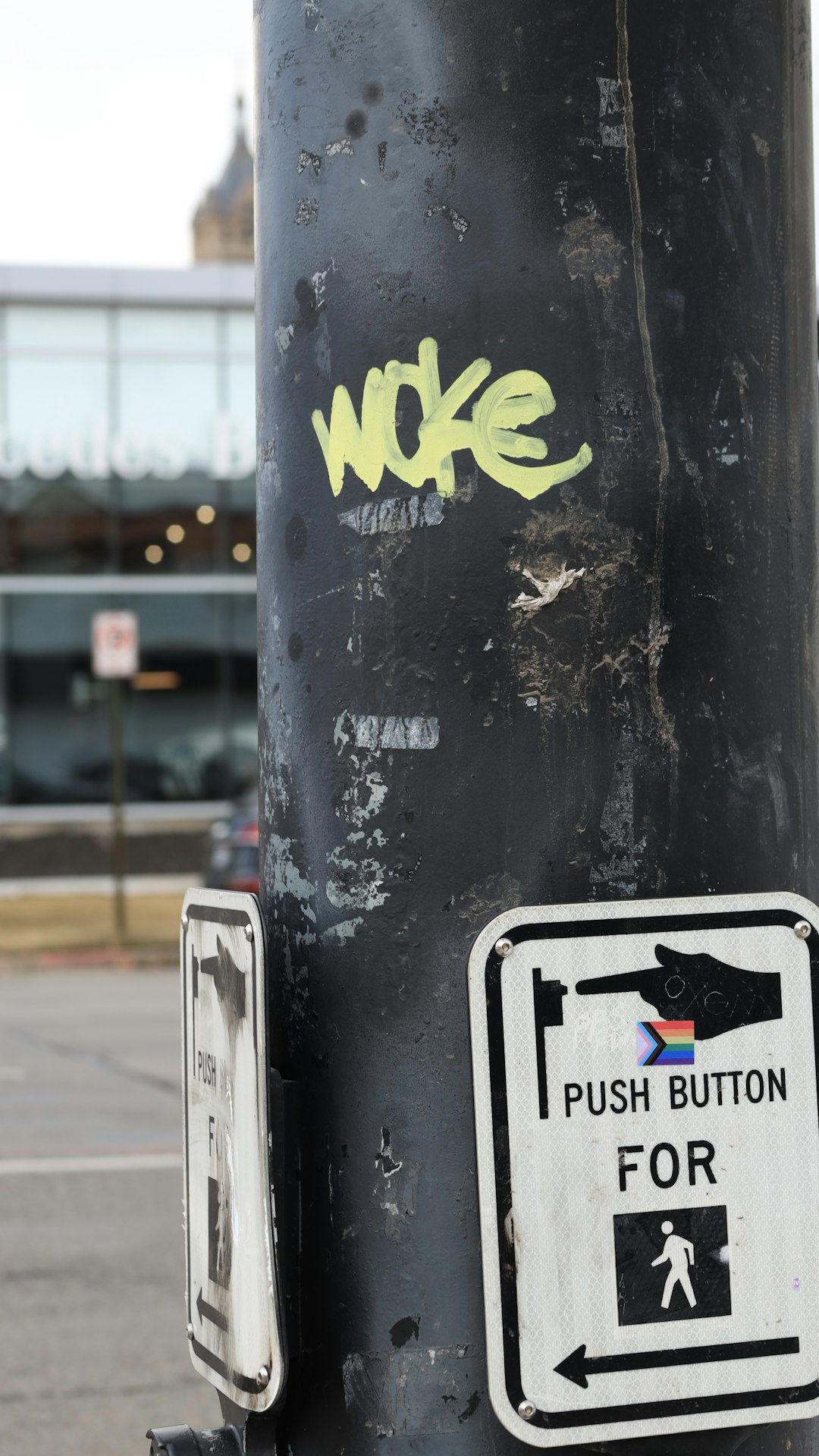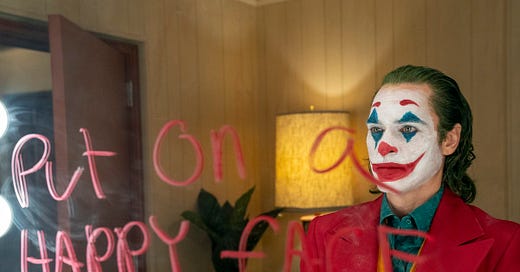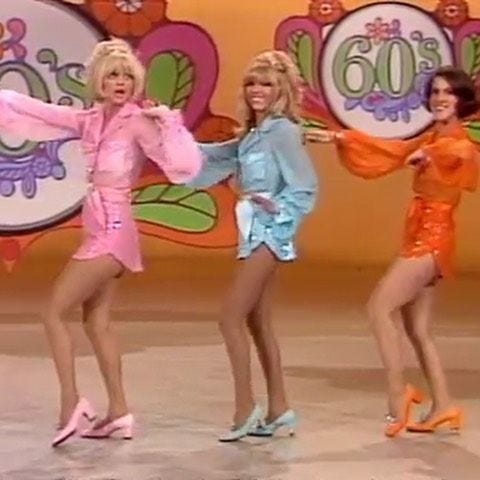“If all printers were determined not to print anything till they were sure it would offend nobody, there would be very little printed.”
― Benjamin Franklin
We’re fast approaching our American Moment of Effete Frivolousness — deep in a Laugh-In era of entertaining mockery, self-indulgent ridicule, and high-brow trivialities, with Nixon inexplicably popping out beneath manhole covers. Such is the era of Woke, and whether we’re baking under the midday sun or witnessing the waning beams of its setting waiting for what comes across the horizon in its place, we’ve been here before, strangely. But we’re not wondering why “Sock it to me” is supposed to be funny or discussing the nuance of Radical Chic, it’s attempting to curate the woke obsession.
In 1964, Susan Sontag wrote “Notes on ‘Camp’” for the Partisan Review. In her essay, she defines the essence of Camp as being
love of the unnatural: of artífice and exaggeration. And Camp is esoteric — something of a private code, a badge of identity even, among small urban cliques” but “no one who wholeheartedly shares in a given sensibility can analyse it; he can only, whatever his intention, exhibit it. To name a sensibility, to draw its contours and to recount its history, requires a deep sympathy modified by revulsion.
Camp occupied a niche in pop culture that celebrated an exaggerated aesthetic, taking seriously a sensibility that admired an over-the-top, nearly nonsensical self-awareness of its irony bordering on satire, but not quite reaching the point of crossing the line. It’s John Waters’ Hairspray or Pink Flamingos; Jane Fonda’s action sexventure Barbarella or Olivia Newton-John’s impossibly Barbie-esque stretch black leggings in Grease. The 1960s Camp culture was a rollicking warp-speed wormhole down a self-contained ecosystem that was selling tickets to the carnival, but never told you what was inside; one had to see it to believe it. As Sontag explains, “To talk about camp is therefore to betray it. If the betrayal can be defended, it will be for the edification it provides, or the dignity of the conflict it resolves.”
The decade of counterculture and contradictions transformed into the shaping of expressions — not in definable terms but by how they elude definition.
The Spectator World Editor-at-Large Ben Domenech posed this scenario in his recent piece writing,
Once terms like these take hold in the world of politics, they aren’t changed overnight. But we have to acknowledge what “woke” leaves out. It is an insufficient term to capture the identitarian, decadent, terminal stage leftism at play here…“Woke” does capture a certain silliness about the modern leftist project — think of the Simpsons episode where Lisa meets a “Level Five Vegan” voiced by Joshua Jackson, who doesn’t eat anything that casts a shadow (and judges her for not reaching his height of consciousness).
But it leaves out the part of this agenda that is a true break with the values that made the West the envy of the world — it’s too silly-sounding to be an existential philosophical threat, even though it is. There has to be a distinction between the people who just put the rainbow sign in their yard because everyone else does it, and those who truly want to cure the planet, starting with you.
Whatever term comes next, it has to capture the destructive decadence the left envisions here as its goal — a post-merit society, a great leveling achieved through inhumanity, erasure and actual maiming and butchery where the scars you bear are the price of the future. The cultural Marxism that drives the iconoclastic left came for the church, the neighborhood, the family — and now targets young children with a message that only by their wounds will they be healed. “Woke” is a fine word as shorthand, casual, absurd — and totally incapable of describing what the cultural left is engaged in today — a project of Ethic Cleansing that will not be ignored.
Woke turned Camp on its head. Rather than being greeted as liberators of a contained world as Camp seemed to do, the progressive illiberal wordsmithing lab produced Woke as a means of identifying who had the proper moral indignation to gain entrance to what Tom Wolfe would name Radical Chic.
From there it is an easy step to turn language into arrows that suit one’s ideological needs, like working wood on a lathe. So, where Sontag burst onto the scene at the intellectual forward fringe of a cultural revolution that thought it was liberating expression, speech, and thought from the confines of prudence and repressive traditionalism followed by sexual norms, entertainment, and the arts. But Camp had its time, and as the American lexicon was overtaken by a generation basking in the light of their superficial accomplishments in an attempt to reimagine proper society, they needed to find a way to establish a political identity solidified in a hierarchy of societal victimhood with a foundation in white liberal guilt.
Domenech is exactly right. Where Camp took frivolousness seriously, Woke is very serious about frivolousness. Overexaggerated emotions and poses, comically exaggerated characteristics and sensitivities, elevating superficial vanities to the point of celebratory accomplishment. It is very grave business, and any idol of the Movement will demand a pound of flesh to worship at the temple of the Just and Good.
This is a new era of “Pharisaic Camp” and acolytes wield their enlightened self-awareness and stinging, authoritarian ability to flagellate everyone else into self-censorship through the new speech and behavior codes. And that is where the danger lies. Rewrite enough Roald Dahl stories and stop publishing Dr. Suess's books and soon no one will bother writing them. Removing James Bond content will send a signal to aspiring writers that their words are no longer theirs but belong to the collective sensitivity establishment.

Camp defied definition in order to maintain its mystique and allure, evoking the first rule of Fight Club in a 1964 editorial letter in response to a TIME magazine article about Camp: “By publishing your recent analysis of ‘Camp,’ you have ensured that Camp will no longer be Camp, if you see what I mean…” But Woke is itself a metastasizing boil on society threatening to envelop every aspect of life.
Social and political censorship has had a profoundly negative impact on our own personal thoughts and expressions. The incremental dismantling of free expression – once the guise of protection from an offense that was born in universities and European salons – has grown into an all-out war on words, thoughts, and ideas in nearly every aspect of public and private life. The tendency to shelter people from their own emotions has given way to an insatiable movement to control what is acceptable for people to hear, see, and discuss. It is the narrowing not only of the mind but of the soul. It has attached criminality to the truth-seeker — for how does man find the truth, the most virtuous endeavor, if he only has access to a predetermined narrative not of his choosing?
Without the liberty to reject and choose those ideas brought forth in the public square, there can be no moral and intellectual health. America once had a national, heterodox discourse about the social norms of society; it now has an autocratic itch that is being scratched by the illiberal left. The American liberal traded his stalwart support of free speech for the calculated defense of censorship by euphemism and mob tactics. “Freedom to choose” only applies to abortion women’s health, never to school choice, stay-at-home mothers, or most importantly, the individual’s choice to question the ideological homogony of their rules; the foundation was made in the journalism schools, elitist universities, and ivory halls of the cultural elites.
Now the walls of acceptable thought are being built outside the realm of universities, politics, and corporate media. They may be the enforcers, but we are all being conditioned to comply with the ordered diktat, to avoid the risk of the unfortunate fate of those that came before.
Those with problematic ideas are canceled for some arbitrary rules of blasphemy that have nothing to do with vulgarity and everything to do with engaging in performative rituals as a condition of employment or being in good standing in civil society — warnings given to people who think that kids shouldn’t be mutilated in transgender operations, or merely that there are two sexes. Or they are forced to resign for not conforming to the regressive policies of racial separatist dogma, white fragility, and systemic racism apologetics.
It adds up to the dangerous trend: The gatekeepers of information know the power of a free individual to pursue knowledge of the truth and they will stop at nothing to withhold that power. It is an indisputable virtue without which we cannot be the owners of our own lives. It is not an act of benevolence or charity by the powerful to protect the common class from potentially harmful ideas. It is an admission of rude condescension and the infantilization of Americans. If we are given only one set of ideas to calibrate our moral compass, how do we know it is truly pointed in the correct direction? How will we know the truth when we cannot compare it with all other forms of error? We risk falling prey to a pharisaic camp that threatens to unleash chaos if we don’t follow its “order.”
It is imperative as we head deeper into the morass of self-censorship that we shore up the institutions that still give us the freedom to consume all ideas – not just those deemed acceptable by the ruling class. (Substack is one such platform giving editorial and intellectual freedom to users.) We cannot wait before Americans wilt at the thought of speaking the convictions of their souls.
John Milton wrote in Areopagitica, “The iron yoke of outward conformity hath yet left a slavish print upon our necks.”







Outstanding post! Definitely home run quality!
I miss Tom Wolfe. His pen popped the bubbles of elitist pomposity. Not just in Radical Chic but also in The Painted Word and From Bauhaus to Our House. I would love to read what he would write about the Great Awokening of the 2020s.